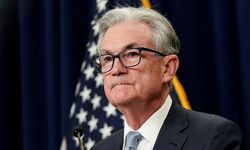US government debt reached $33 trillion last week. This came amid a ballooning federal government deficit and a wave of massive Treasury bonds.
budget
Rising government debt is usually not a major cause for concern. This is because a state is not expected to pay off its debts in full. What matters is the ability of countries to keep up with debt service payments.
US Treasury Secretary Janet Yellen said on Monday that she usually considers the ratio between gross domestic product and net interest to assess the US fiscal position.
According to Insider, this ratio is currently around 1%. However, the US Congressional Budget Office expects interest payments to account for 6.7% of GDP by 2053. Accordingly, interest payments on the US debt will overtake social security payments by 2051, becoming the country's largest expenditure item.
"This is clearly not sustainable," said Maya MacGuineas, Chair of the US Congress' Committee for a Responsible Federal Budget. There is only one way to assess the picture: If your debt is growing faster than your economy, which ours is, and if your interest payments, whatever indicator you look at, are growing faster than the economy, faster than your income, faster than many other indicators, these are all big warning signs. All of these warning signs are being seen right now."
CBO indicators show that US debt as a share of GDP will set a new record this decade, rising from its current level of nearly 100% to 107% in 2029. In other words, total US debt will surpass the record debt level of 106% of GDP set in 1946. By 2053, total debt will be 181% of GDP.
The US still has the world's most liquid bond market and can buy new debt from investors as needed.
However, MacGuineas says debt repayments must come first when the government makes budget decisions. Failure to do so brings with it the risk of a US default, which was averted in June.
Current US interest payments already outstrip federal spending on youth education. Within four years, they will even exceed defense spending.
"Once this became known, members of Congress took the issue very seriously," MacGuineas said. This is a serious warning signal."
If the CBO's forecasts are correct, it won't just be federal programs that will intensify. A stagnating economy could also weaken the US's ability to invest in critical areas such as national security.
Wall Street has also begun to sound the warning signals. Leading bond commentators have recently warned that the US Treasury needs to continue to draw enough money from the market to cover the growing debt, which they predict will keep interest rates rising. However, experts emphasize that this only makes borrowing costs more onerous.
MacGuineas said that reducing government debt would require tax increases on both rich and middle-income Americans. In the meantime, defense and social security spending would have to be cut if necessary.
"We know how this should be done. There are many sensible plans out there. But we lack the political will to do what is necessary. In this hyper-partisan environment, politicians are promising heavily that they will not do exactly what we need to do."
US interest payments will exceed the defense budget!
The world's largest economy seems to be in debt. If the US fails to take decisions in economic policy that will not please the masses, the interest payments alone will exceed the US defense budget in 4 years
Trending news

Snoop Dogg to carry the Olympic torch

Lily James Expresses Admiration for Hailey Bieber’s Rhode Skincare Line

Taylor Tomlinson Will Explore Her Faith and Sexuality on Tour!

'Alien mummy' in Peru raises eyebrows

Scandal in the heart of Europe: Child abuse in a church!

Kamala Harris’ Running Mate: Here’s Who Could Be Her VP After Biden Drops Out And Endorses Her









